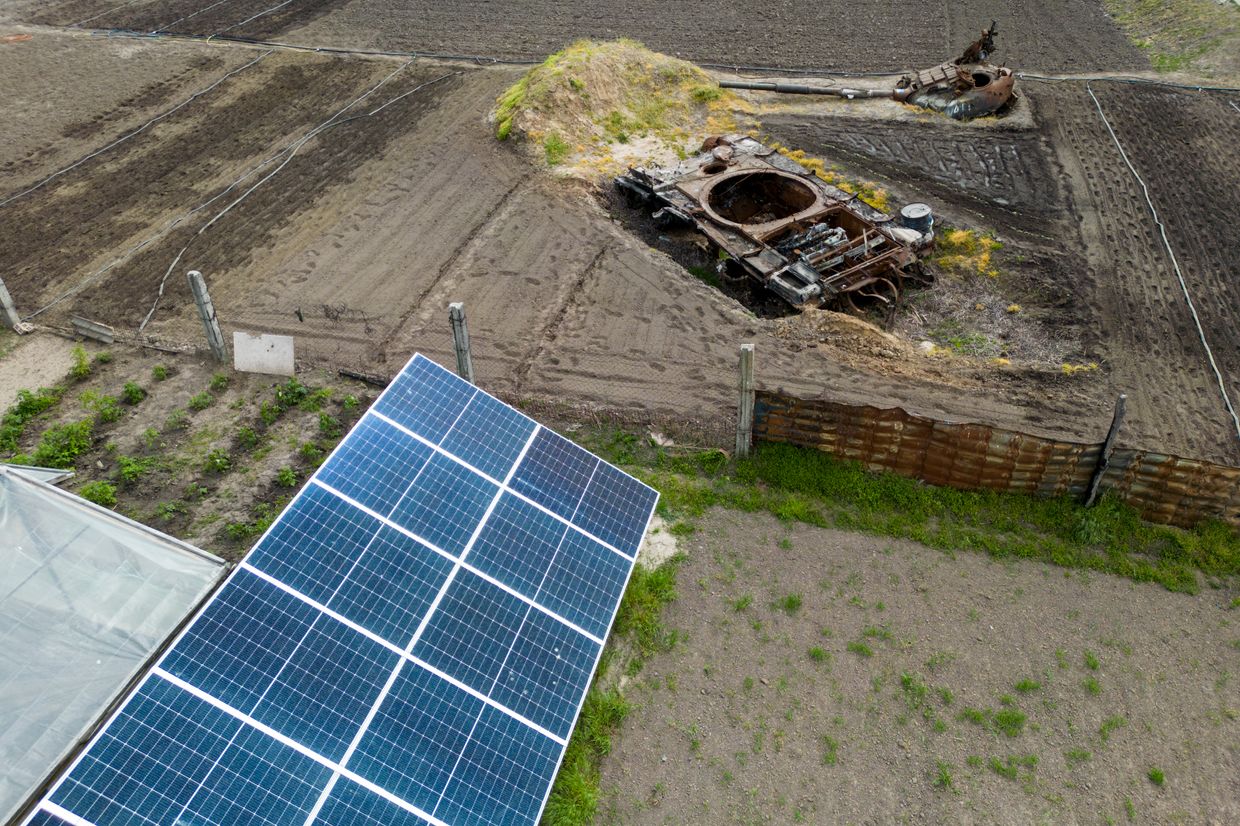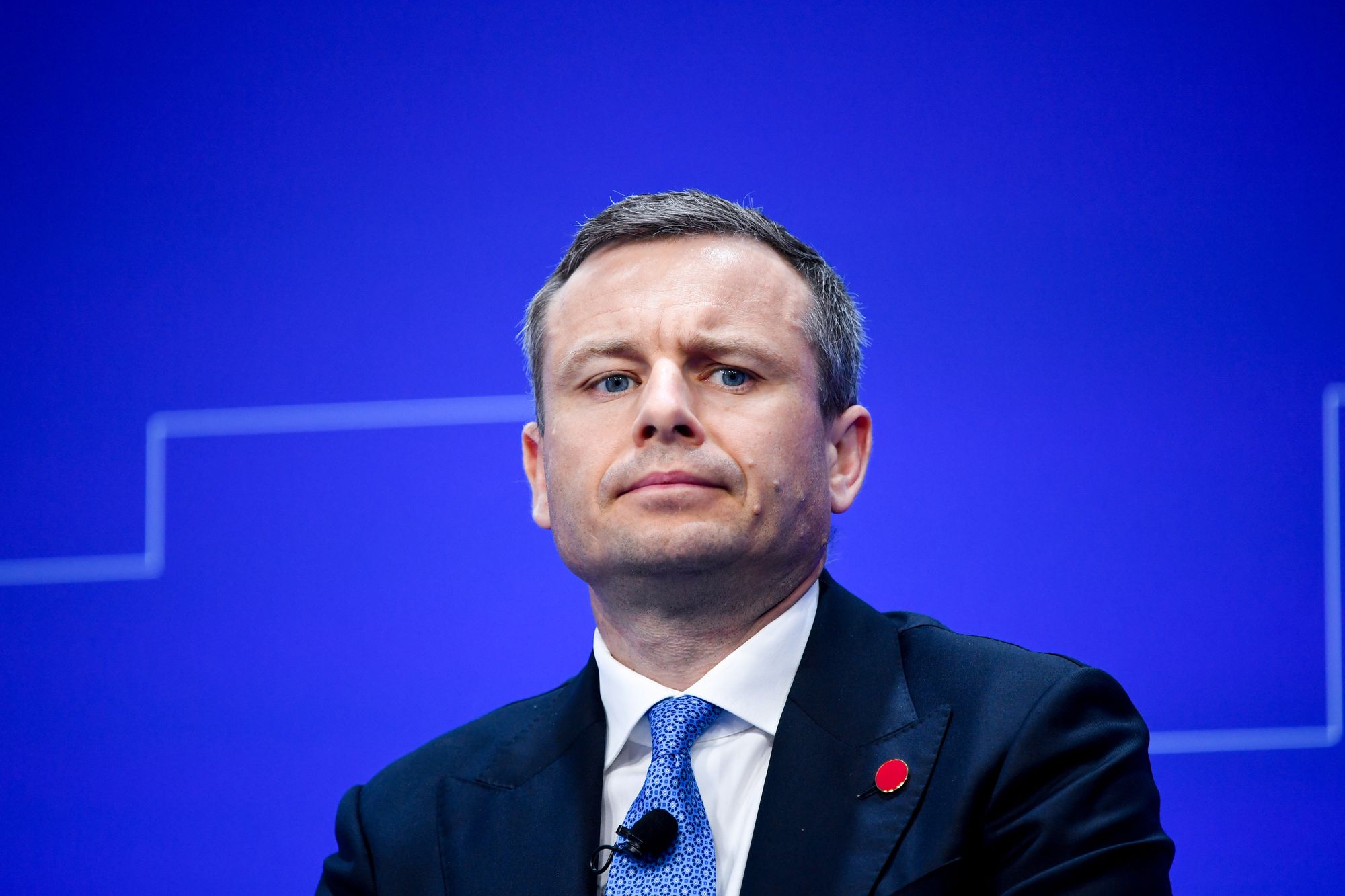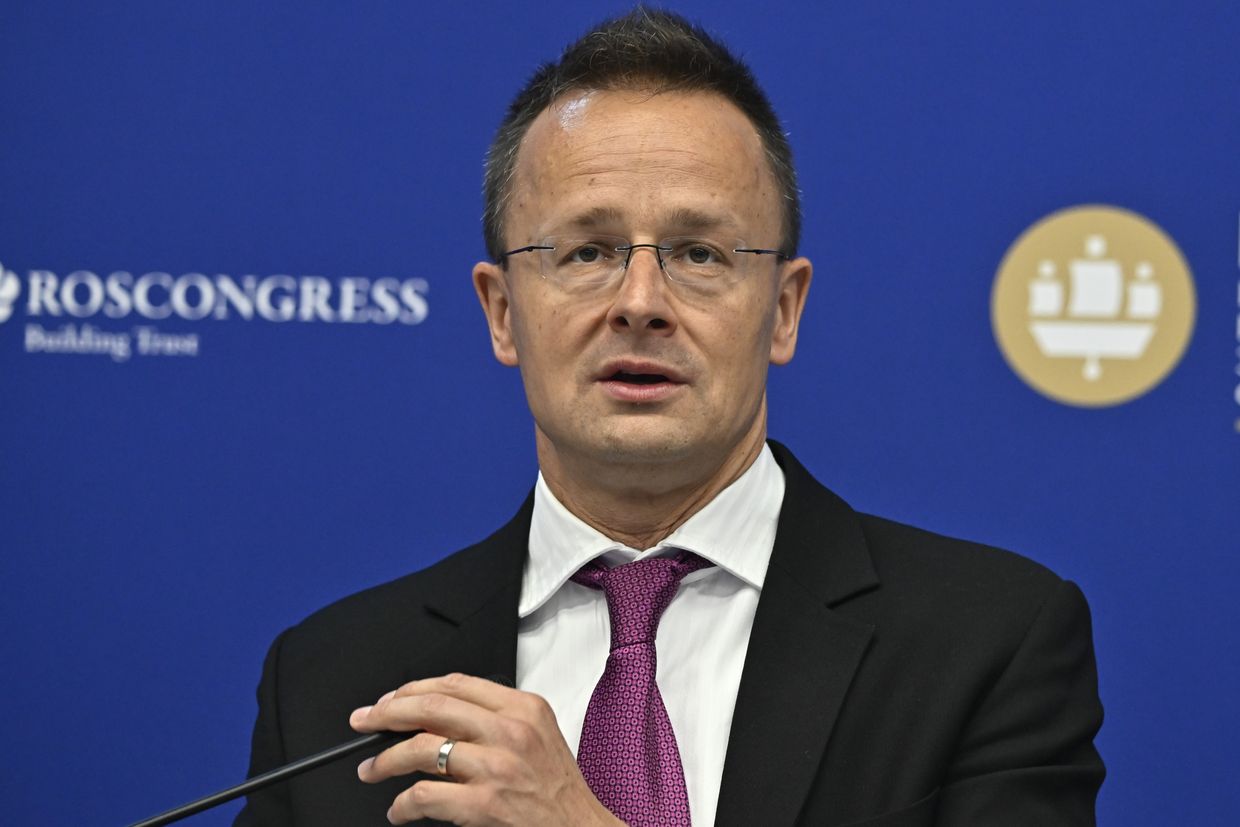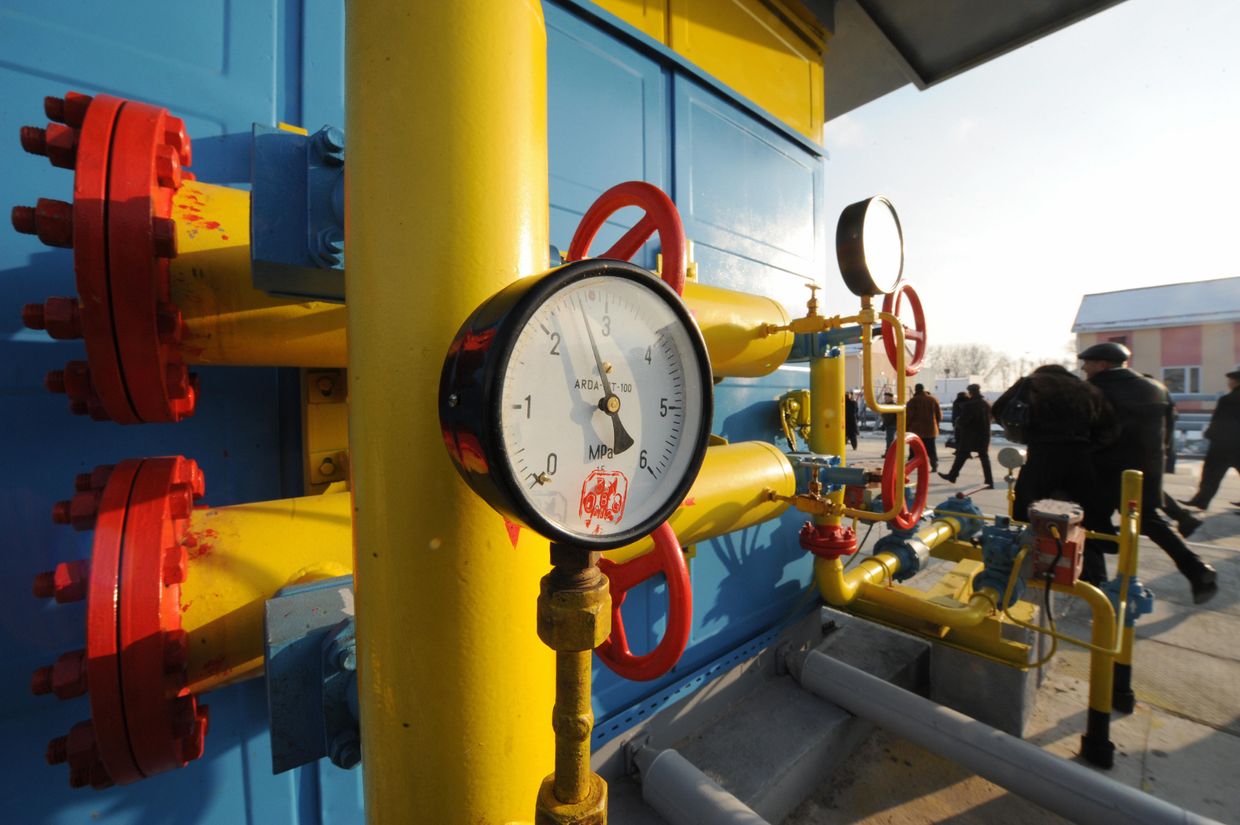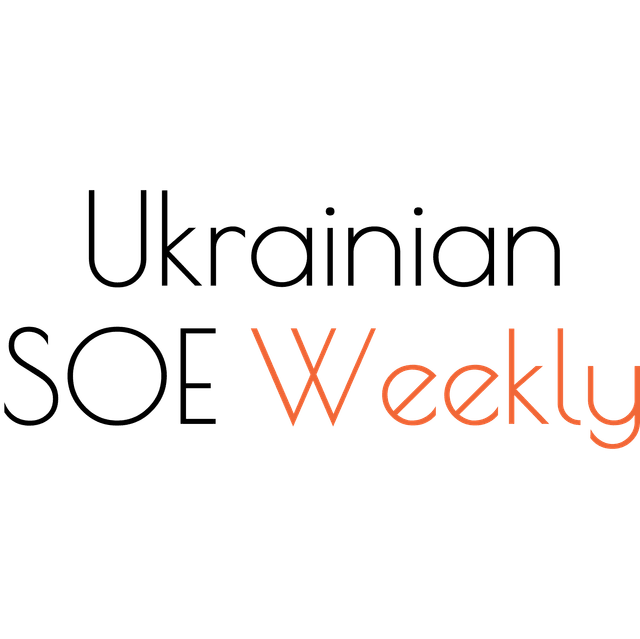Ukraine state-owned enterprises weekly — Issue 140

Editor’s Note: This is issue 140 of Ukrainian State-Owned Enterprises Weekly, covering events from July 7-13, 2024. The Kyiv Independent is reposting it with permission.
Energy sector
Naftogaz Group pays Hr 47 billion ($1.1 billion) in taxes for January-June 2024, the company’s press office reported on July 11. The state budget got almost Hr 44 billion ($1.06 billion), and local budgets got Hr 3.2 billion ($77.5 million).
In June alone, Naftogaz Group paid Hr 8.7 billion ($210 million) in state taxes and Hr 500 million ($12.1 million) in local ones.
As we reported in Issue 115, Naftogaz Group paid Hr 83.4 billion ($2 billion) in taxes to the state budget and another Hr 6.8 billion ($165 million) to local budgets in 2023.
As we wrote in Issue 131, Naftogaz Group reported that it made Hr 23.1 billion ($560 million) in consolidated net profit in 2023, a significant rebound from its Hr 79.1 billion (around $2 billion) loss in 2022.
As we reported earlier, Naftogaz Group paid Hr 6.1 billion ($148 million) in taxes to state and local budgets for January 2024 (see Issue 119), Hr 5.3 billion ($128 million) for February (see Issue 123), Hr 8.3 billion ($201 million) for March (see Issue 128), Hr 8 billion ($193 million) for April (see Issue 132), and Hr 9.3 billion ($225 million) May (see Issue 137).
Defense
Ukraine Defense Industry (UDI) opened a representative office in the U.S., its first ever foreign office of this sort, the company’s press office reported on July 9. It will focus on three key areas:
- interaction with business and expert organizations,
- cooperation with government agencies and defense organizations, and
- support of UDI enterprises’ projects in the U.S. and partner countries.
“We believe that the representative office is an important step towards strengthening our cooperation. Currently, Ukrainian companies already have several preliminary agreements with their American counterparts. The UDI office in the U.S. will help accelerate their implementation and strengthen the integration of Ukrainian defense into NATO’s defense industrial base,” Oleksandr Kamyshyn, strategic industries minister, said.
Besides, UDI and Northrop Grumman, one of the largest U.S. defense corporations, signed an agreement to establish a new medium-calibre ammunition production facility in accordance with NATO standards.
As we wrote in Issue 136, on June 12, UDI signed a memorandum of intent to establish a joint venture with the U.S.-based Amentum Services, one of the leading global design, project management, and solution integration companies. The memorandum provides for potential cooperation in the restoration and maintenance of U.S.-made armored vehicles.
Privatisation
Cabinet sets the starting price for Ukraine Hotel’s privatization. On July 12, the Cabinet of Ministers approved the terms of sale of Ukraine Hotel in Kyiv. The starting price is Hr 1.05 billion ($25 million).
The buyer must maintain the hotel’s core business, pay off wage and budget arrears, and settle overdue accounts payable within six months. They must provide social guarantees to employees in accordance with the law and may not dismiss employees within six months of acquiring ownership, the State Property Fund of Ukraine (SPFU) explained.
As we wrote in Issue 116, the SPFU planned to put Kyiv’s four-star Ukraine Hotel up for privatization. According to SPFU head Vitaliy Koval, the hotel is under-booked because of martial law and has racked up more than Hr 45 million in debts (around $1 million at the time).
As we reported in Issue 129, on April 23, the Cabinet designated Ukraine Hotel as a large-scale asset for privatization.
Cabinet sets the starting price for UMCC’s privatization. On July 12, the Cabinet of Ministers approved the terms of privatization of United Mining and Chemical Company (UMCC). The starting price is Hr 3.9 billion (€94.5 million). An earlier version of the Cabinet decision on the same matter (from June 16, 2021) was declared invalid.
According to the approved terms of sale, the buyer must maintain the company’s core business and invest at least Hr 400 million ($9.7 million) in technical re-equipment and modernization. As with other companies, the buyer must also pay off wage and budget arrears and repay overdue accounts payable.
As we wrote in Issue 33 three years ago, the UMCC privatization auction was scheduled to take place on Aug. 31, 2021. Later, in SOE Weekly’s Issue 41, we reported that the SPFU cancelled that auction because it only had one qualified bidder.
The media published a list of participants allegedly interested in UMCC assets. Some of them said that the asset was not well prepared for privatization, and they did not consider the auction terms fair. Others claimed that the starting price was inadequate. It was reportedly impossible to estimate the company’s mineral deposits.
The SPFU’s auction commission set Oct. 29, 2021 as the new auction date, but that auction was also cancelled (see Issue 49 for more). So was the following auction on Dec. 20, 2021 (see Issue 57 for detail).
See more on the previous attempts to sell UMCC in our Issues 33, 41, 49, 56, and 57.
In Issue 105, we reported that the SPFU changed UMCC’s executive board, dismissing first deputy CEO Yaroslava Maksymenko and replacing her with Yegor Perelygin in September 2023. As we wrote in Issue 135, the Cabinet appointed Perelygin as UMCC’s acting CEO on June 4.
As we reported in Issue 106, the SPFU planned for UMCC to be one of the first large companies to be privatized. The starting price would be determined with BDO Corporate Finance, the SPFU’s advisor on the privatisation of UMCC.
However, as we wrote in Issue 109, then acting head of the SPFU Oleksandr Fedoryshyn said later in October 2023 that the SPFU was going to offer investors to buy UMCC in a single package with Demurinsky Mining and Processing Plant.
Vitaliy Koval, the newly appointed head of the SPFU, confirmed this later in an interview (see our Issue 117). In effect, this suggested that the SPFU’s previously announced plans to privatise UMCC as one of the first targets would be seriously delayed, if not put aside.
However, as we reported in Issue 133, the SPFU’s most recent communication on the matter on May 23 suggested that the Fund discarded the idea of bundling UMCC and Demurinsky in a single lot.
The SPFU auction commission determined the terms of UMCC’s privatization on May 23. The starting price was set at Hr 3.9 billion ($94.5 million). See Issue 133 for more detail.
UMCC resumes production at the Irshansk Mining and Processing Plant. On July 11, UMCC announced that the quarries at its Irshansk Plant are fully operational, after being shut down since October 2022.
The shutdown was caused by a lack of contracts for the sale of ilmenite concentrate and a glut of finished products in warehouses.
Since then, UMCC signed a large contract to sell the branch’s products to a strategic North American customer.
“We currently have an active contract with a U.S. end user for 70,000 metric tons of Irshansk’s ilmenite concentrate. Another 25-40,000 tonnes are currently under discussion. Additionally, we are preparing to start negotiations for 30,000 tonnes for a European end user, with a shipment plan for Q4 2024. As we have almost sold the old stocks in our warehouses, the resumption of quarrying operations is critical,” UMCC's acting CEO Yegor Perelygin said.
According to him, the company plans to produce 12,000 tonnes of ilmenite concentrate per month by the end of 2024.
As we wrote in October 2023 (Issue 106), UMCC started shipping ilmenite concentrate from Irshansk Plant to the Czech Republic.
Cabinet puts seized AEROC and Demurinsky Plant on privatization list. On July 9, the SPFU reported that the Cabinet added two more seized Russian companies to the large privatisation list: construction materials producer AEROC and the Demurinsky Mining and Processing Plant.
The Cabinet’s decisions were not publicly available at the time of writing.
Starting prices should be determined soon.
According to the companies’ 2023 financial statements, the value of AEROC’s assets is Hr 947 million ($22.9 million), and the value of the Demurinsky Plant is Hr 654 million ($15.8 million), the SPFU added.
In SOE Weekly (Issue 74), we reported that the High Anti-Corruption Court (HACC) satisfied an appeal by the Justice Ministry on Feb. 3, 2023 and confiscated the Demurinsky Mining and Processing Plant formerly owned by Russian oligarch Mikhail Shelkov.
In Issue 77, we reported that the Cabinet of Ministers transferred Shelkov’s assets to the SPFU, including Demurinsky.
As we reported in Issue 109, then acting head of the SPFU Oleksandr Fedoryshyn said that the SPFU was going to offer investors to buy Demurinsky is a single package with UMCC.
Vitaliy Koval, the newly appointed head of the SPFU, confirmed this later in an interview (see our Issue 117). In effect, this suggested that the SPFU’s previously announced plans to privatise UMCC as one of the first targets would be seriously delayed, if not put aside.
However, as we reported in Issue 133, the SPFU’s most recent communication on the matter on May 23 suggested that the Fund discarded the idea of bundling UMCC and Demurinsky in a single lot.
As we wrote in Issue 110, SPFU planned to privatize AEROC, previously owned by sanctioned Russian oligarch Andrei Molchanov. See our Issue 97, 100, 106, and 110 for more detail.
Confiscation of Russian assets, nationalization, and asset seizure
ARMA uses seized foreign currency funds for the first time, buying $31 million in war bonds. On July 10, the Asset Recovery and Management Agency (ARMA) announced that it purchased $31 million worth of foreign currency military bonds for the first time.
The weighted average yield of the purchased bonds is 4.6%, which is higher than the yield on foreign currency deposits. This purchase would provide the Ukrainian army with the most necessary weapons, ammunition, equipment, food, and medicines, ARMA said.
According to ARMA, it used funds seized from sanctioned individuals and companies, including offshore companies linked to Russian oligarchs Mikhail Fridman and Pyotr Aven, as well as the 1xbet betting company. They also used the $1 million seized from the former head of the regional military medical commission.
Since the beginning of 2024, ARMA purchased military bonds worth Hr 1.7 billion (almost $42 million), not counting the most recent $31 million purchase. Combined, this makes almost Hr 3 billion in hryvnia equivalent ($73 million). The total volume of government bonds in ARMA’s portfolio reached a record high of Hr 5.5 billion ($135 million).
As we wrote in Issue 129, on April 23, the Verkhovna Rada adopted Draft Law No. 10397, which allowed ARMA to invest seized foreign currency funds into military bonds.
Ukrainian SOE Weekly is an independent weekly digest based on a compilation of the most important news related to state-owned enterprises (SOEs) and state-owned banks in Ukraine.
The contents of this publication are the sole responsibility of the editorial team of the Ukrainian SOE Weekly.
The SOE Weekly is produced and financed by Andriy Boytsun. Communications support is provided and financed by CFC Big Ideas. The SOE Weekly is not financed or influenced by any external party.
Editorial team: Andriy Boytsun, Oleksiy Pavlysh, Dmytro Yablonovskyi, and Oleksandr Lysenko.


